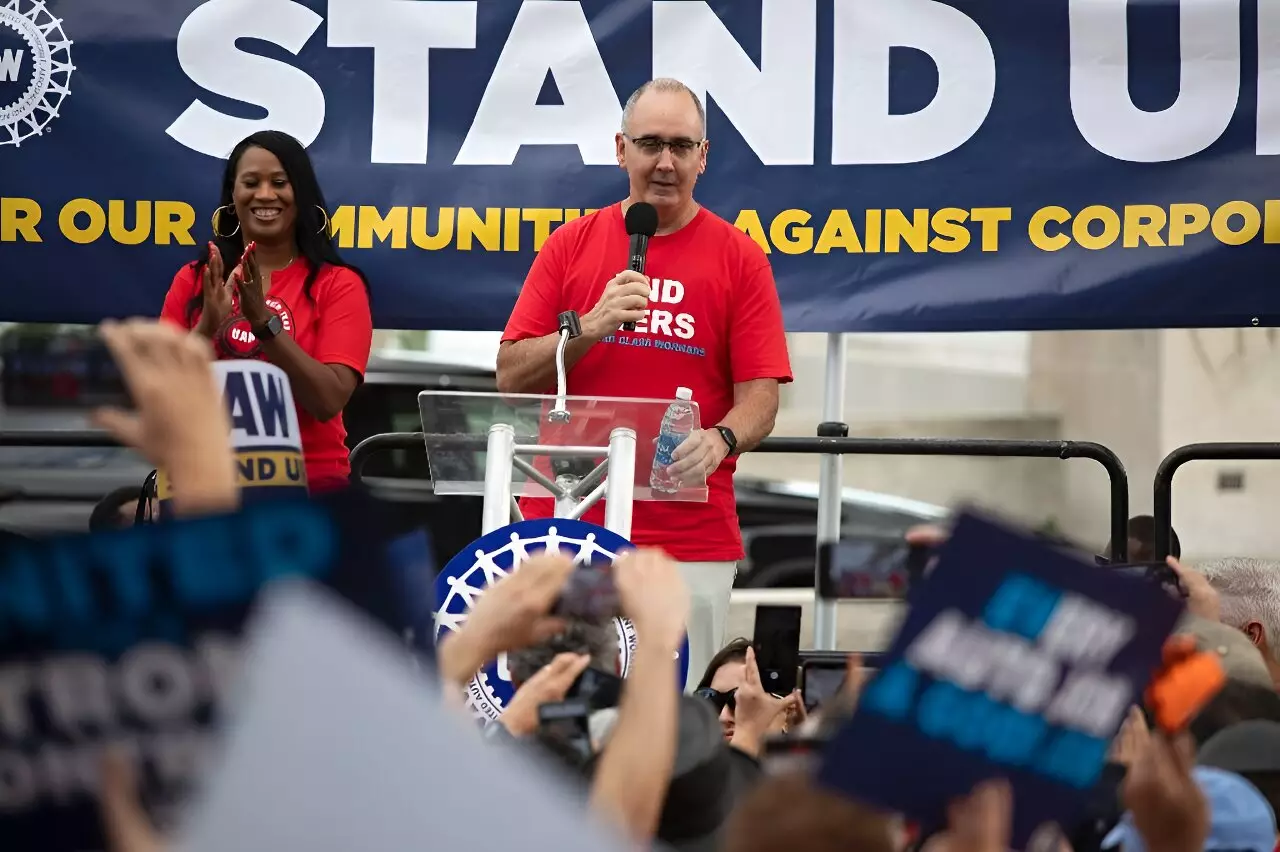The recent union drive at Mercedes-Benz’s Alabama facilities, spearheaded by the United Auto Workers, faced a disappointing setback as workers cast their votes against unionization. With the margin standing at 56 to 44 percent, the preliminary tally of 2,642 workers rejecting unionization and 2,045 in favor unveiled a stark reality for the UAW. This rejection dealt a blow to the ambitious campaign of the UAW to organize the American South, following a successful union drive at Volkswagen in Tennessee.
President Shawn Fain and the UAW had high hopes for a victory at the Mercedes auto manufacturing plant and battery complex near Tuscaloosa. However, the union faced stiff opposition not only from Mercedes itself but also from state and local officials. Governor Kay Ivey of Alabama, a Republican, voiced her views by highlighting the differences between Alabama and Michigan, emphasizing the state’s aversion to the UAW’s presence. This opposition, coupled with warnings of potential job losses and economic threats, painted a challenging landscape for the UAW’s campaign.
Fain expressed disappointment in the election results and accused Mercedes of engaging in “egregious and illegal behavior” during the campaign. Workers who supported unionization lodged complaints of unfair labor practices and supply chain law violations with the National Labor Relations Board and German officials. The company was accused of conducting anti-union communications at mandatory meetings, influencing the opinions of rank-and-file employees against unionization.
The victory at Volkswagen had initially raised hopes within the UAW for further successes at plants operated by Honda, Toyota, BMW, and others in the South. The UAW’s recent strike at Detroit automakers General Motors, Ford, and Stellantis had elevated the union’s profile, showcasing the potential for large wage hikes and improved worker conditions. However, the struggle of organized labor in the American South persists, with deep-rooted opposition from politicians who argue against union presence in the region.
Despite the setback at Mercedes-Benz’s Alabama facilities, Fain reiterated the UAW’s commitment to pressing on with additional campaigns in the South. Highlighting the importance of justice beyond a single vote or campaign, Fain emphasized the union’s determination to continue fighting for the rights of workers. This unyielding spirit in the face of defeat underscores the resilience of the UAW and their unwavering dedication to advocating for labor rights in the region.
Through the lens of the recent unionization rejection at Mercedes-Benz’s Alabama facilities, it is evident that the road to organizing the American South remains fraught with challenges. The outcome of this campaign serves as a reminder of the complexities and barriers faced by organized labor in a region historically resistant to unionization. Despite the disappointing results, the determination of the UAW to persist in their efforts signals a continued struggle for justice and workers’ rights in the face of adversity.


Leave a Reply